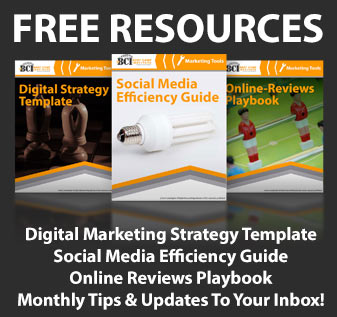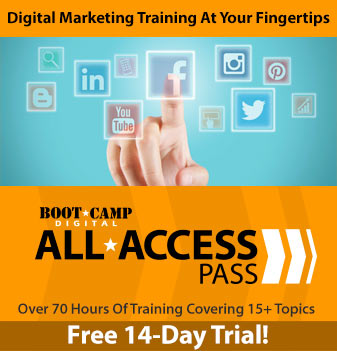
The problem is that I can’t pay my bills on free coffee/lunch/dinner PLUS it devalues my business. I actually once had another marketing consultant ask to meet for coffee saying he had some social media business that he might send me. At the meeting he basically asked me for my advice so that he could implement it with his clients. He wasn’t even a friend. I was SO SHOCKED.
I love my job. I love what I do. I love helping people. But if I answer every email question or meet with people for them to “pick my brain” I wouldn’t get any work done.
The article on Forbes suggests that you shouldn’t give away your advice for free. Even to your family and friends. To me that is a little extreme since I really do enjoy the opportunity to help my friends and family and give back.
Here are the key challenges that I see:
- Determining who is a good investment to meet with. My business is largely built on networking. If I don’t meet people I won’t have a business, so I can’t turn down everyone. A few years ago I adopted a policy not to meet with anyone (even on the phone) where there isn’t a clear purpose and benefit for me. I don’t want to review your product or get a tour or give you my feedback. Even with this policy, people still get through. I’ve had people ask to meet to talk about partnering, when really they want referrals from me (with no incentive for me). On the other hand I’ve met with people about partnering and seen tremendous returns.
- How do you nicely say no. Seriously, I HATE saying no to people. I find it hard. How do you tell them no? I sometimes deflect by saying that we could discuss some of these things if we had an engagement, but it is still hard. Especially for people I like who have already signed up for some of my classes.
In our Facebook discussion on the issue, Michelle said:
“It takes a certain amount of discernment and judgement to figure out when a meeting would be a worthwhile investment in other ways besides money (open doors down the road, support a good cause etc). For me – if I had the time, I would say yes as often as possible just for sheer karma because, heck, I picked a few brains when I was getting started. But honestly, I was getting to the point where I was drinking so much free coffee and my work schedule was going haywire. Something (or someone) has to give…. back! I think what it boils down to is not necessarily just saying “no,” but finding a way to be helpful in a way that is equitable. Equitable is not the same as equal, but it is healthy and fair. No one can argue with the need to function in a way that is healthy and fair. And, in fact, when you are able to show where the boundary is (like they say in the article) and what your needs are, and do it diplomatically, you earn respect of those who truly are worthwhile connects. But still, there are those cases where you just have to follow your gut and take a leap of faith.”
Some Creative Solutions to Turn “Pick Your Brain” into $$
- Membership program with a Q&A – If you really do respect my advice, then you should be willing to invest in one of my programs to get it. If it isn’t worth $27 for a social media marketing membership program (that also gives you webinars and countless videos) then it probably isn’t worth my time to give you my advice. This is actually one of my solutions that just launched. The membership program for only $27 gives you the opportunity to get access to my content plus call in to a monthly Q&A call and ask whatever you want. If my advice isn’t worth it to you than don’t waste my time.
- Tell them you have an upcoming webinar on that topic – Many years ago when I was starting out Cliff Ravenscraft gave me this idea. He suggested that if someone asks you a question, tell them that you have a webinar coming up on that topic, and that it will give them a much better ROI than your consulting rate. Next, create the webinar, charge $25 or $50 for it and market it to your existing contacts as well. If you get 10 people signed up it is a better ROI, and you answered the question.
- Don’t be accessible – I know people who do this. They don’t give you the opportunity to talk to them directly until you have invested in a training or coaching program. They give you the info and don’t share any personal contact information. This way you are paying for access. I don’t think that this fits well with my brand or in working with corporate training programs, but it can probably work for a lot of businesses.
- Have Your Fee Schedule Handy – This technique is suggested in the article. Always have a fee schedule handy and pass it out when the subject arises. It can be tactful and hopefully turn questions into clients.
- Include Follow-Up Questions in Proposals – I do this with many of my corporate projects. If I have been hired for training or consulting, I want to make sure that my clients have everything they need to be successful, and I am happy to answer a few questions after the engagement has ended. That being said, I’ve had some clients send VERY in depth questions, well after the engagement has ended. So, in my proposal as a VALUE ADD I include follow up calls as a line item. This way they have a set amount of time to ask questions without feeling guilty, and if the follow-up exceeds my time allocation I can ask them how they want to handle it.
- Create a Group for them to Poll – Michelle Spelman said in our Facebook conversation “Saying no to brainpickers isnt fun, but it feels better than being taken advantage of. Most people don’t realize they crossed a line. The linkedin group I started was a direct result of too many brainpickers…. now I give them my consulting rate and invite them to join the group and pick the group’s brains. If they are seriously wanting my expertise, they hire me. If they can only afford coffee/lunch, they just join the group. It’s a win/win for all involved.”
Here are My questions to YOU:
(Feel free to answer one, all or talk about something else)
- How do you decide which meetings to take?
- How do you say no?
- How do you get people to say yes?































Krista,
I remember this from last year and so agree with you. We deal with this issue constantly and are now very selective with those we meet. Some have actually been wonderful brand ambassadors and sent us business, so we do allow for some leeway.
Angela
Angela – Thanks for commenting. Expanding your network always has value – the real question is how do you decide which meetings to take and which ones will only waste your time.
Krista — Great suggestions. My wife has been getting lots of requests like these from people who want free help in getting their book published — more and more from total strangers. She did a PowerPoint for a workshop she did a year ago to raise money for our church — and because she was getting lots of coffee requests — and put it on Slideshare. Quite often, she points people there. However, she is thinking about sharing her knowledge and experience as a consultant. I like all of the ideas, especially having a fee schedule handy. You want to be helpful, but your time is valuable…
Great article, Krista! And a tough topic. Here’s how I say no:
“Thanks so much for your invitation. Unfortunately, I’m slammed with client work for the next couple months, but you’re welcome to follow-up in to see if my schedule is more open.” You could also offer a nugget like, “Sign up for my newsletter if you want some good info before then.”
It’s not a lie and you avoid looking rude or unhelpful. Rarely will you hear back. And if you do, maybe reconsider. Or repeat.
Thanks for the discussion and for including my comments here Krista!
I really like #2!!
#5 makes a whole lot of sense – including the “follow up questions” component in a proposal sets equitable expectations. It puts a prospective client’s mind at ease and allows them to feel comfortable doing business with you when your proposal shows that you thought things through ahead of time as much as possible.
And that $27 membership program is a bargain if I ever saw one! 😀
Great tips! 🙂
Krista –
Very interesting post! This topic is one I’ve spent a lot of time thinking about in my 13 years of solo consulting, and have written about from various angles over at my blog, http://www.ThatBrandingThing.com. Some thoughts:
1. As a consultant, your time is your only inventory, and needs to be managed accordingly. With this in mind, I track my time very carefully and specifically, and review it often to assess its productivity. (I strongly recommend this, if you’re not doing it already – I can guarantee you’ll be surprised, and not necessarily positively.) One thing I learned is that most networking events were a waste of time relative to my business objectives. It’s much better, for instance, to have the podium than to be in the audience, so I direct my energies accordingly. (I also understand that a different business, with different objectives, may find networking events to have a terrific ROI.)
2. Over the years, I’ve met with a number of people who only wanted to take advantage of my network. One guy – someone I’m almost certain you know from the Cincinnati agency community – actually pushed me a list of his target companies within 5 minutes of sitting down to lunch, asking me who I could help him reach. Uh… I can’t help you at all, sir; I don’t know you. After a number of such meetings, I began asking precisely the questions you’re asking.
3. My experience has been that those who want to “pick your brain” almost never bring you real work, either directly or indirectly. (Face it: If they were really considering hiring you, they would have opened with that.) And by giving them your expertise for free, you are effectively kicking your paying clients in the teeth. One simple (and very honest) line of defense: “No, I can’t offer my feedback on your logo/ad/marketing plan/business idea; I don’t know enough about your situation and objectives to comment intelligently.”
With all the above in mind, I stopped taking any networking meeting for which I couldn’t see a clear benefit. My business hasn’t suffered a bit. These days, I find it very easy to say no to such requests, knowing that I will almost certainly invest that time in a way that better serves my clients and my business.
One exception to my own rule: I will meet with any college student who asks. Though I’ve been disappointed by the lack of preparation or curiosity of some, most come prepared and ask very good questions, and I’ve been able to help a few of them out in their job searches.
Great topic!
Matthew Fenton
Excellent post, Krista, and I agree with your suggestions on handling such requests. Being a recruiter, and the job market being what it is, I get plenty of these, and I want to be as helpful as I can without jeopardizing my work.
Matthew – thank you for adding the paragraph about college students. As an adjunct, I encourage my students to reach out to professionals to learn more about the field they want to pursue. But, I also explain to them that if they aren’t willing to take the time to properly prepare for a meeting, then they have no business asking for one, primarily out of respect for others time.
Thanks so much for sharing this touchy topic, Krista. It happens to me a lot. “Can I pick your brain about getting my book published?” Or even worse, “Can you review my book and tell me what you think?” Some are friends, but many are people I don’t know other than from Facebook. And lately I’ve been getting people who refer their friends to me for “free advice.”
The hard part, is like you, I love to help people. But my time is limited, and living with cancer, I’ve decided to only do work that enriches my life. So while I’m always up for talking with other cancer survivors, it doesn’t feed my soul to give free business advice.
So I decided to do a workshop called, “Do You Have a Book in You?” with a very detailed Powerpoint presentation that I put on Slideshare. I did an actual workshop at my church and a webinar for a networking group I belong to. But now if someone asks me, I direct them to my SlideShare presentation. I’m in discussion with a fellow breast cancer blogger to find ways to monetize this and other “intellectual property” I’ve acquired through research and hard work.
Krista,
very interesting article. I started my business a year ago as virtual assistant and everyday is a learning day for me. I really appreciate this topic as it will surely help me to develop my networking skills.
Learning to say no is huge when your education is a lot about how to please anyone! But it is really worth the effort.
Thanks
Marie